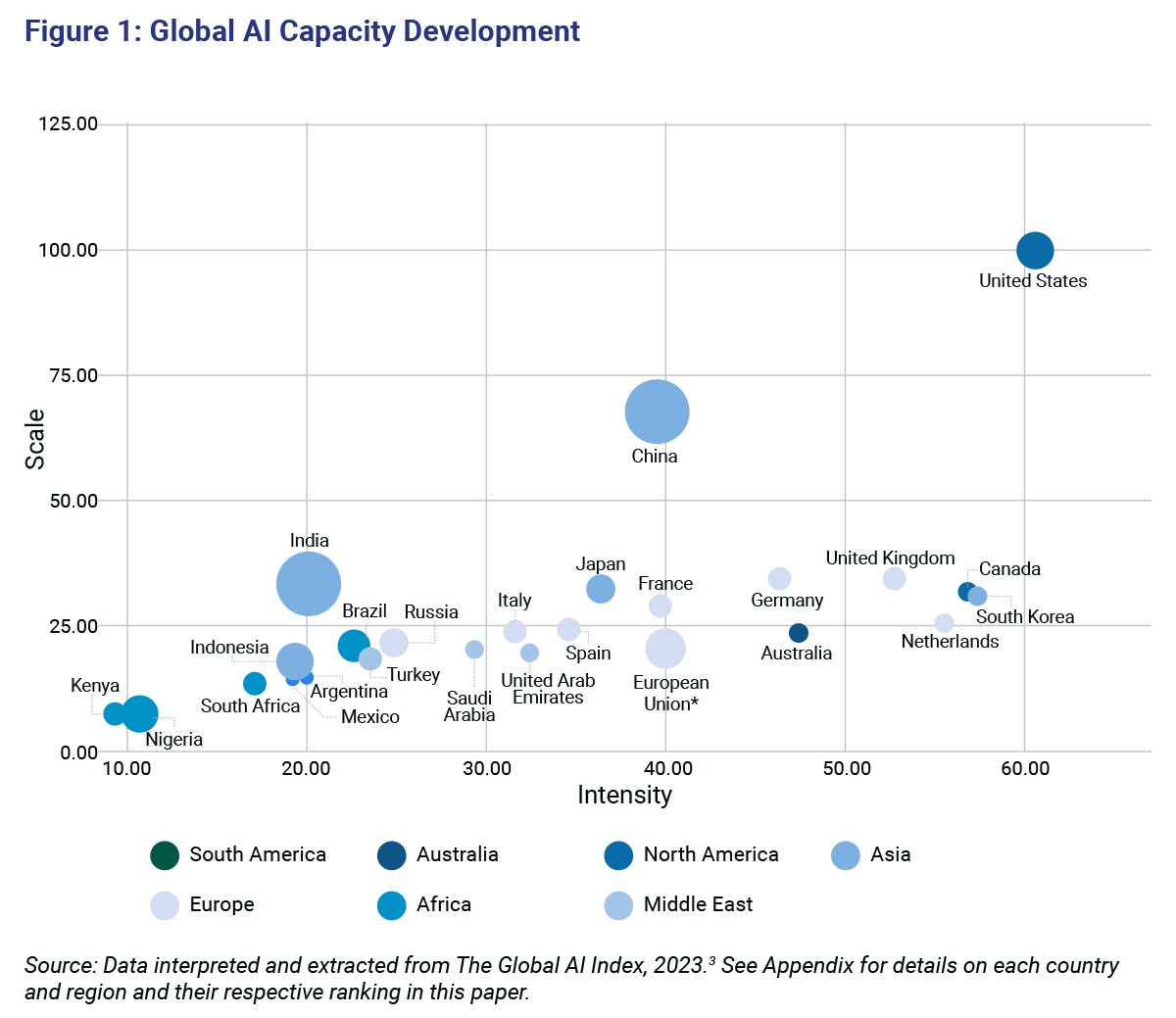The speed of technological advancement has led to concerted efforts to create governance frameworks that ensure the development and deployment of AI technologies in a beneficial and equitable manner. Global agreements and conventions on AI, such as UNESCO’s Ethics of Artificial Intelligenceor the Global Partnership on AI (GPAI), highlight the emphasis on aligning AI growth with development goals. Such consensus at the international level has also spurred the framing of national AI strategies, which signify countries’ commitment to navigating the complex landscape of AI development. These strategies serve as blueprints for technological advancement and lay out the ethical, social, economic, and security dimensions of AI’s impact on a nation’s growth. Despite a shared recognition of the importance of AI development, nations’ ventures vary, as shown in Figure 1.

Figure 1 represents the scale and intensity of the AI capacity development of each country, including its supporting government regulations, the investment and involvement of the private sector, academic and research development, and infrastructure capacity. The y-axis (Scale) depicts a nation’s absolute AI capacity, and the x-axis (Intensity) reflects the existing capacity in terms of the country’s relative population and economic disposition (measured in the Global AI Index using GDP).
The Global AI Index measures the AI capacity of 62countries by quantifying their investments, innovations, and technology implementation in different sectors. This report draws from the index to explore the AI capacities of the G20 countries and offers recommendations on how the platform can enhance the growth of AI.
National strategies reveal each country’s priorities and concerns; together, they indicate the direction in which global development is headed. The G20 nations, representing 85 percent of worldwide GDP, can position itself at the forefront of development through AI. This report examines the national AI strategies of the G20 nations; and highlights five non-G20 countries—Nigeria, Kenya, Singapore, Spain, and the United Arab Emirates (UAE)—to discuss rapidly growing regions and examine their role as leaders outside the G20.




